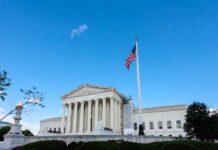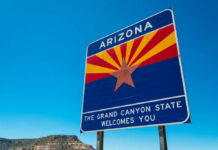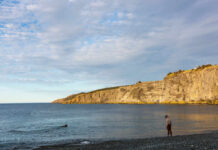
A 1,500-year-old Christian mosaic discovered at Abraham’s birthplace reveals early communal elder care—reminding Americans how faith and tradition once anchored society.
Story Snapshot
- Archaeologists in Urfa, Turkey, unearthed a Byzantine-era Christian mosaic with a Greek inscription addressed to “elders.”
- The mosaic provides rare material evidence of institutional elder care in early Christian communities.
- Discovery highlights religious heritage at a site revered by Jews, Christians, and Muslims as the birthplace of Abraham.
- Findings spark renewed interest in faith-based social responsibility and preservation of tradition in a time of globalist overreach.
Discovery in Urfa: A Mosaic of Faith and Tradition
Archaeologists led by Michael Eisenberg at the University of Haifa uncovered the ancient Christian mosaic in Urfa, Turkey, traditionally known as Abraham’s birthplace. The floor mosaic, dating from the Byzantine period, features a Greek inscription translating to “Peace be with the elders.” Its location near central residential streets and a town plaza signals its importance in communal life. Iconography such as Egyptian geese, cypress trees, fruits, and pots further suggests an environment focused on care and hospitality, echoing values that once formed the bedrock of Western civilization.
Ancient Christian mosaic with mysterious inscription unearthed at traditional birthplace of Abraham
Site traditionally regarded as Abraham's birthplace yields Byzantine artwork with Greek inscriptionshttps://t.co/ixJyr4EYSm
— The Big Bad Conservative Wolf (@RightWingNest) November 11, 2025
This mosaic stands apart from previous archaeological finds in the region, which included churches and Christian art but none directly referencing elder care. While ancient texts mention charity and support for the vulnerable, physical proof of organized Christian elder care institutions has been absent until now. The inscription’s focus on elders provides a window into a society where respect for age and wisdom was not just a family concern but a communal, faith-driven mission—a stark contrast to modern bureaucratic approaches that often sideline tradition and faith.
Watch:
Early Christian Social Practices: Evidence of Communal Care
The mosaic’s inscription is seen by experts as the earliest known material evidence of institutional elder care in the Holy Land. Eisenberg and colleagues argue the discovery demonstrates how Christian communities began assuming responsibilities previously managed solely by family networks. This signaled a shift toward organized, faith-based social welfare, predating government overreach and secular control. Such practices, rooted in scriptural values, reinforce the conservative belief in local community and limited government—principles under threat from globalist and progressive policies that replace faith with faceless bureaucracy.
Stakeholders and Heritage Impact: Preserving Values Amid Modern Challenges
The excavation in Urfa was a collaborative effort involving international academics and Turkish authorities, with local government supporting heritage tourism and academic institutions publishing the findings. The mosaic’s revelation has boosted Urfa’s status as a multi-faith heritage site and sparked increased tourism and global attention. For local residents, the discovery offers economic and cultural benefits, while for religious and academic communities, it provides new insight into early Christian life and communal responsibility.
The long-term implications of the mosaic’s discovery extend beyond archaeology. It encourages further exploration of social welfare in antiquity and strengthens interfaith dialogue at a site revered by Jews, Christians, and Muslims. At a time when progressive policies erode family structures and constitutional safeguards, the mosaic’s message—honoring elders through faith and community—offers a powerful counterpoint.
Sources:
Early Christian community may have run one of the world’s first elder care centers, mosaic reveals
RogueClassicists Bulletin: November 11, 2025

























